The best films at LFF 2019 fell under the radar. Correspondents Orla Smith and Ben Flanagan discuss their six favourites of the festival. Read more LFF coverage.
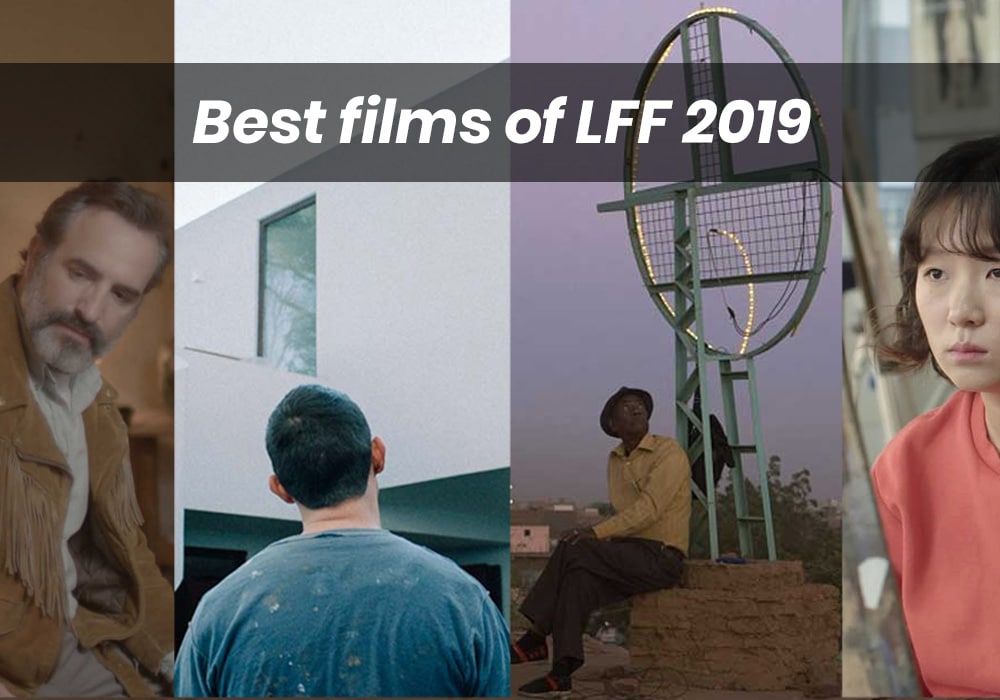
As the London Film Festival (LFF) isn’t home to many world premieres — we saw most of them back at Cannes and TIFF — it’s an opportunity to see a lot of smaller films. This year in particular, our LFF correspondents Orla Smith and Ben Flanagan were most taken with the films that took them off guard, those that haven’t garnered that much buzz thus far. Many of them don’t even have distribution! These were their six favourites from the festival.
Deerskin (dir. Quentin Dupieux)
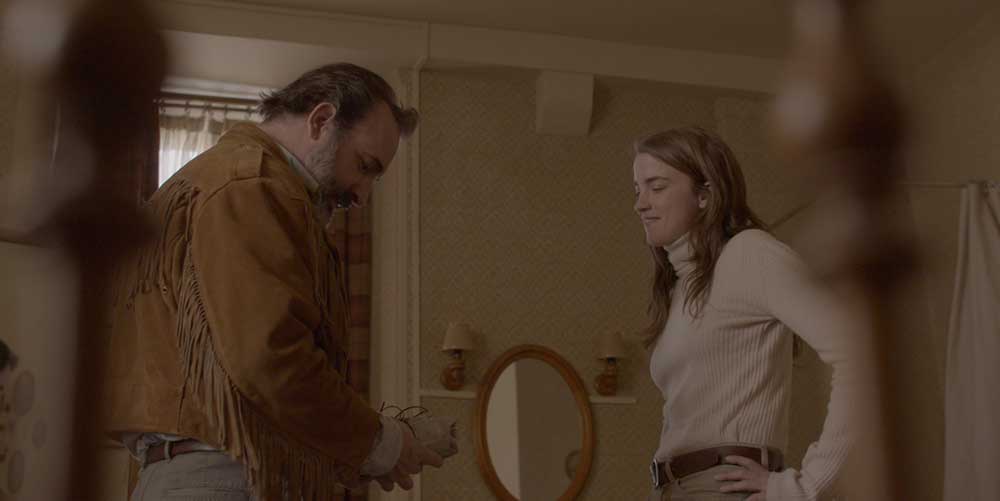
It’s best you discover the absurdity of Deerskin for yourself — because it truly is absurd. Shot in a realistic register that only makes the unreality of the premise stand out in more hilarious ways, Deerskin follows a mysterious man, Georges (Jean Dujardin), as he arrives in a remote town. The first thing we see Georges do is buy a deerskin jacket (which comes free with an old video camera) and marvel at himself in the mirror, seemingly overcome by the magnificence of his appearance now that he’s donned his new purchase. He comes across a few locals, constantly bringing up his jacket, to their confusion. One of these locals is barmaid Denise (Adèle Haenel), an aspiring film editor whom Georges recruits to edit a film about him and his marvelous jacket. Things, somehow, get weirder and weirder from there. Deerskin is a deadpan delight, led by two brilliant comedic actors in Dujardin and Haenel. Haenel, in particular, had a great LFF: Portrait of a Lady on Fire features an astonishing, devastating dramatic turn from her, but setting that against her polar opposite turn in Deerskin proves the broad scope of her talents. – Orla Smith
Heart (dir. Ga-Young Jeong)
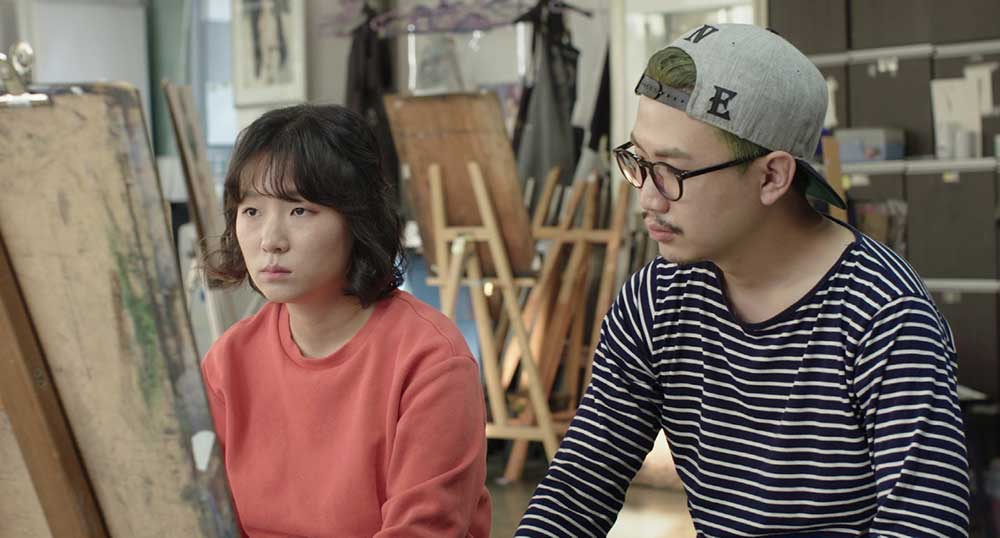
Ga-young Jeong’s Heart was labelled in the LFF programme as “the Korean Fleabag,” an overused and frustrating comparison that doesn’t accurately express what’s great about Jeong’s twisty, witty little film. But whatever gets eyes on deserving content, I suppose. Jeong also stars in the film as a young filmmaker entwined in various affairs and pining after various men.
The first half of the film is set almost entirely in one room, an art studio in which she smokes with, talks with, and has sex with her married lover — all while venting to him about how in love she is with another man. The second half of the film shifts completely, however, to a later timeline, in which Jeong is in pre-production of a film inspired by her affair. She meets with an actor she wants to work with, and he interrogates her about her script and her desire to make a film that’s so close to the truth and which implicates her ex-lover in infidelity.
It’s a true portrait of the artist: Jeong is constantly reflecting on her own creative process in increasingly meta-textual ways, bringing the film closer to Adaptation than it is to Fleabag. In that fascinating second half, the conversations between director and actor cause Jeong’s character to have multiple revelations about her own work. Jeong is constantly surprising us with the depth of self-awareness about her own work as her characters discuss and deconstruct the narrative that they exist within. – OS
Talking About Trees (dir. Suhaib Gasmelbari)
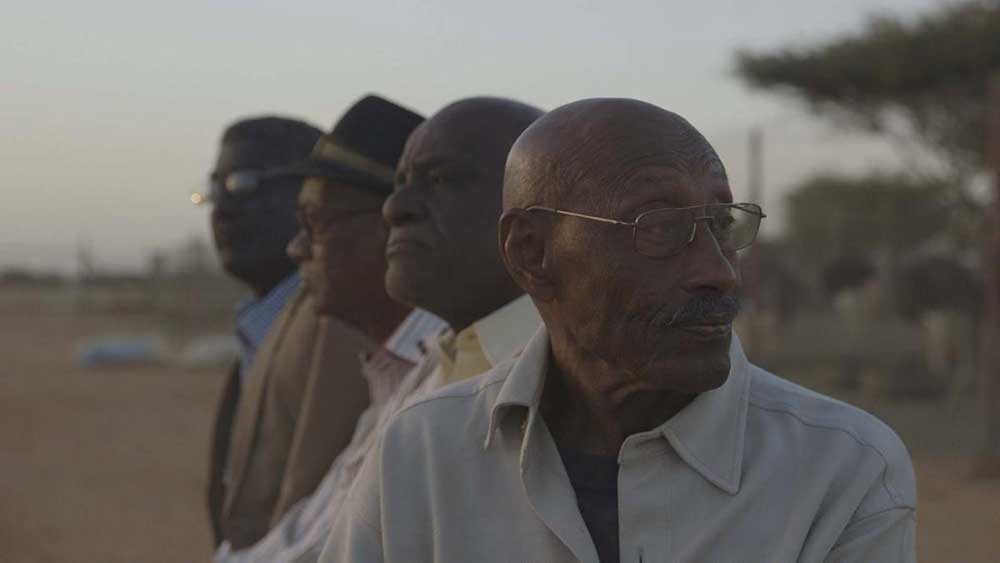
In the dead of night, lit by flashlights, four men reenact the ending of Sunset Boulevard (Wilder, 1950). Their joy is two-fold: the shared memory of one of cinema’s most indelible scenes, and the subversiveness of their act. Sudan’s government-cum-dictatorship has effectively banned cinema since 1989, slowly phasing out theatres and removing funding from the cinematic institutions.
We meet the real men today, now four older men — including Ibrahim Shaddad, and Suleiman Mohamed Ibrahim Elnur — each of them a classic director of Sudanese cinema. These are Sudan’s Bogdanovich and Scorsese, having flourished in the 1960s and 70s. But if they can no longer make films, they will set about the preservation of cinephilia, which makes up the bulk of this documentary.
Director Suhaib Gasmelbari depicts their struggle to screen films in Khartoum, get the right paperwork in, and just hang out. They just want to hold a screening of Django Unchained (Tarantino, 2012). Lower-tier Tarantino could be a signal of liberation, full of action, triumphs against evil, and laughs. They make it sound like old-fashioned fun, like The Adventures of Robin Hood (Curtiz, Keighley, 1938).
Gasmelbari chooses clips from their films, showing leafy, edenic landscapes interrupted by psychological nightmares. The Khartoum of today is depicted as a desolate, one-horse town that Django might ride through without stopping. But Talking About Trees shows how even under oppressive states, cinema never quite leaves you when you’ve been infected. The film is as much a powerful meditation on the medium as it is an urgent piece of reportage. – Ben Flanagan
Watermelon Juice (dir. Irene Moray)
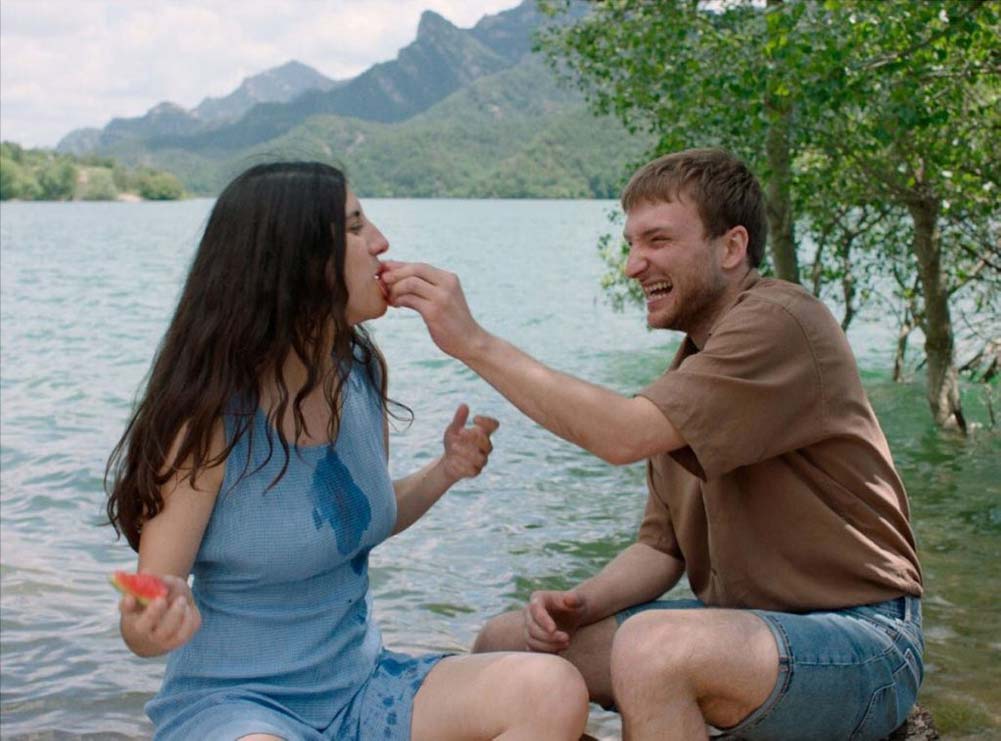
Pol (Max Grosse Majench) and Bàrbara (Elena Martín) are, by all intents and purposes, happy. While holidaying with friends in Catalonia, everything is drenched in beautiful, bright sunlight. They gaze at each other adoringly, joke with and jostle each other with casual affection, and their disagreements are easily diffused with open communication.
Director Irene Moray’s touching Watermelon Juice follows the couple’s little excursions away from their group of friends, whether that’s having sex in the morning or lazing by the river in the afternoon. The couple’s conflict is something so rarely acknowledged in cinema: throughout their relationship, Bàrbara has been unable to orgasm due to previous sexual trauma. Despite the pair’s healthy, loving, supportive relationship, it’s a weight that pushes on them both. Pol is desperate to make his girlfriend happy and Bàrbara’s issue is compounded by the pressure she puts on herself to perform, especially when she knows how happy it would make Pol if his efforts succeeded.
Moray’s greatest achievement is making something constructive and even sweet out of stigmatised subject matter. Watermelon Juice is a wistful, beautiful film about a strong and stable relationship, observing the central couple with lightness, humour, and gentleness. In one scene, Pol brings Bàrbara slices of watermelon to eat, having heard that watermelon has sexually-stimulating properties. The two laugh over Pol’s sweet, silly gesture. Ultimately, it’s not the watermelon that helps Bàrbara to come, but the comfort she feels with Pol, knowing that whatever happens, he’ll support her, and that they can laugh about anything together. – OS
The Whistlers (dir. Corneliu Porumboiu)
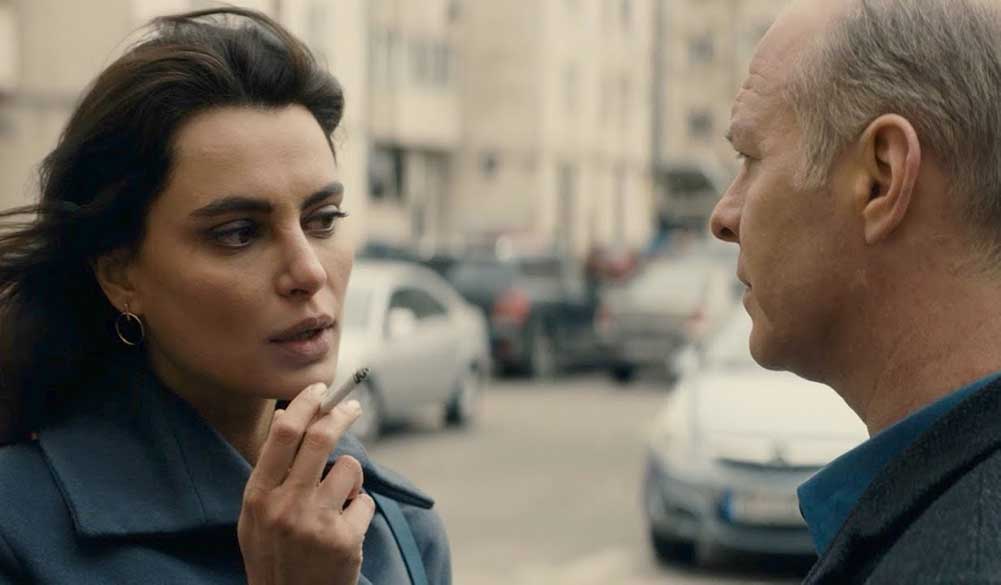
A Romanian cop lands in the Canary Islands and gets wrapped up in the mob’s double, triple, and quadruple crosses in this slice of commercial arthouse fare that has been compared to the Coen Brothers. It’s a cineliterate, goofball caper with a cast of zany characters. But that doesn’t quite do justice to the mood that Corneliu Porumboiu summons here, wherein each character seems stuck in the performance of an archetype, trapped by life inside a Film Noir.
As the viewer is sucked into this world of el silbo, a whistled version of Spanish that’s native to the La Gomera in the Canaries, Poremboiu uses the obsession with language to draw attention to the grammar and codes of cinema. The plot is so straightforward, that it’s really the meta-cinephilia level that makes it so much fun. There is a cynical self-awareness in the gratuitous nudity, which Poremboiu nudges us to notice the contrivance of in genre films, while winkingly leering at it all the same. It seems for its own sake, another surface level statement in a film of surfaces.
But what makes the film linger in the mind is the sadness at the characters’ lack of awareness; they fit so snugly into archetypes, especially as the plot contrivances pushes them to reenact scenes from films like Psycho (Hitchcock, 1960) and The Searchers (Ford, 1956). But they’re never aware enough to say “Hey, I’m in a movie!” They have no free will, and it’s haunting. The Whistlers goes down well if taken as a straightforward thriller, but through its convoluted web of references there’s a paean for the loss of originality going on, too. Porumboiu whistles, and waits for answers. – BP
Workforce (dir. David Zonana)

Mistreated, unpaid, and desperate, a group of builders illegally occupy the enormous modernist house they’ve been putting up in one of Mexico City’s wealthiest districts when the owner dies. Scenes play out in long, distant takes, which, along with the conflict of wealth disparity, superficially resembles last year’s Netflix darling Roma (Cuarón, 2018). But Workforce doesn’t aim to valorise the underclass or look at them as somehow ecumenically sanctified; holy through poverty. Instead, director David Zonana relishes their flaws: their quirks, their humour, and their shortcuts to comfort.
Francisco (Luis Alberti) devises the scheme after his brother, a workman on the site, dies due to poor safety precautions; the owner of the house refuses a payout. He feels owed, so he starts squatting in the luxurious house. Soon, he invites friends and family to move in, but is he creating a new utopia or is it a scam? As Francisco settles into the comforts of a jacuzzi, a large room, and a quiet neighbourhood, he becomes increasingly sniveling about sharing his newfound space with his friends and their families.
Zonana’s righteous anger doesn’t manifest in hand-wringing. Rather, in the Neo-Realist tradition, it’s greed and hubris that results in tragedy: the Greek Gods here being the capitalist system which forces its denizens always to aim upwards, always to expand, and always to exploit. Unpaid wages came up in a few films at the festival, including Mati Diop’s Atlantics and Levan Akin’s And Then We Danced. Something’s brewing, and Workforce is vicious in its cynicism of the human condition. – BP

